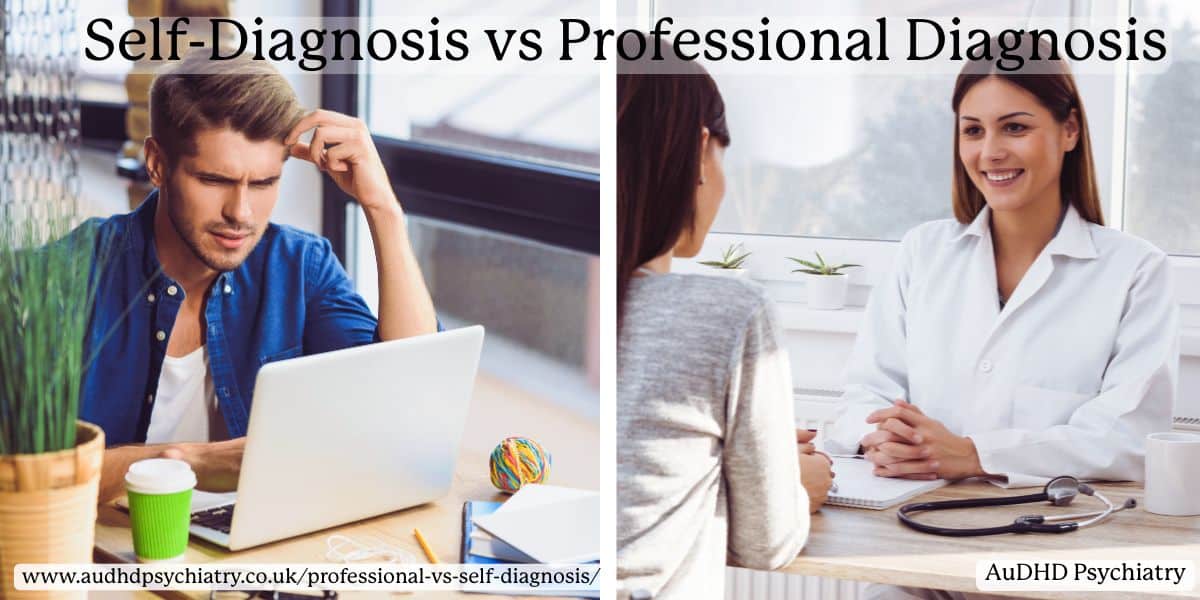
Feeling like you tick every box on an online ADHD checklist? You are not alone. Many adults in the UK turn to self-diagnosis when they recognise familiar struggles such as poor focus, disorganisation, or emotional ups and downs. But while self-tests and TikTok videos may seem convincing, they are not enough for an accurate ADHD diagnosis.
The truth is that only a professional ADHD diagnosis provides clarity, access to treatment, and official recognition for workplace or academic support. Self-diagnosing ADHD risks confusion, mislabelling, or even overlooking other mental health conditions. Symptoms overlap with conditions like anxiety or depression, making professional evaluation essential.
In this article, we’ll explore the risks of self-diagnosis and why booking a structured ADHD assessment with a qualified specialist is the safest and most reliable step forward.
ADHD Basics: A Quick Primer
Attention deficit hyperactivity disorder (ADHD) is a neurodevelopmental disorder that affects attention, impulse control, and executive function. In adults, ADHD often looks different from childhood presentations. Hyperactivity can be less visible, while difficulties with planning, time management, and emotional regulation become more prominent.
Core features
- Inattention: losing focus, distractibility, careless mistakes, misplacing items
- Hyperactivity: inner restlessness, difficulty sitting through meetings, feeling “on the go”
- Impulsivity: interrupting, rushing decisions, difficulty waiting
ADHD is not laziness, poor motivation, or a character flaw. Symptoms can overlap with mental health conditions such as anxiety or depression, which is why self-diagnosis of ADHD is unreliable.
Self-tests vs formal diagnosis
An online ADHD assessment or adhd screening tools can be a helpful starting point, but an online ADHD diagnosis is not the same as an official diagnosis. Only a healthcare professional can provide a reliable, accurate diagnosis using clinical interviews, validated checklists, and a full diagnostic process. If you are unsure whether your difficulties reflect ADHD or different conditions, a professional evaluation is the safest route.
With the essentials in place, let’s look at why relying on self-diagnosis can lead to real risks in daily life and care.
The Risks of ADHD Self-Diagnosis
The internet has made it easier than ever to self diagnose ADHD. Online quizzes, checklists, and forums can create the impression of a simple answer. However, while these tools may highlight potential ADHD symptoms, they cannot provide an accurate ADHD diagnosis. The risks of relying on self-diagnosis are significant.
Misdiagnosing ADHD vs Other Conditions
Many mental health conditions share overlapping symptoms. Difficulty concentrating, fatigue, and restlessness may stem from anxiety disorders, depression, or even medical conditions such as thyroid dysfunction. Without a qualified healthcare professional conducting a full evaluation, there is a real danger of mislabelling. This is why professional ADHD diagnosis remains the gold standard.
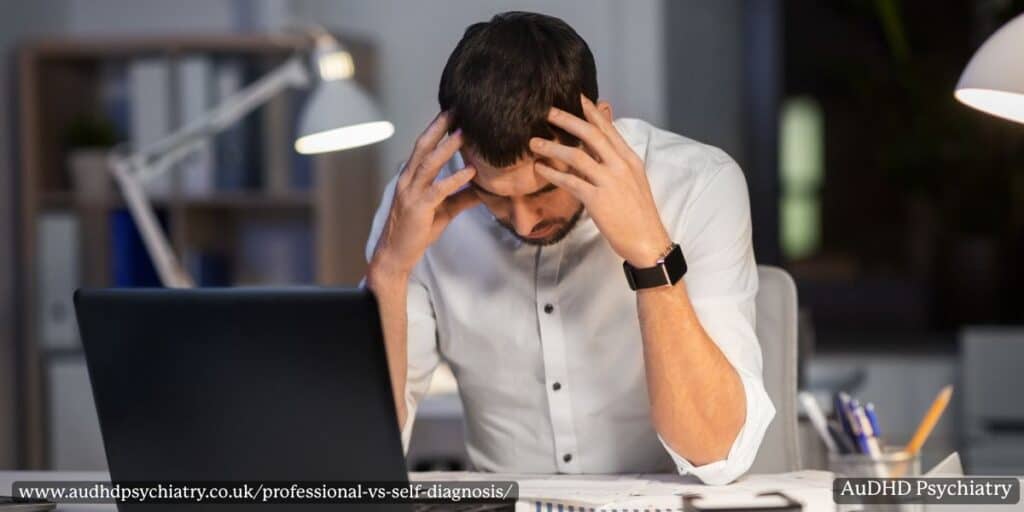
Emotional and Psychological Consequences
Self-diagnosis can lead to unnecessary worry, or alternatively, false reassurance. Some people may dismiss serious mental health issues, while others may feel trapped by a label that has not been properly validated. Both scenarios can contribute to stress, low self-esteem, and stalled progress in getting appropriate support.
Financial and Time Costs
Those who self-diagnose ADHD often invest time and money in the wrong treatments. For instance, they may purchase productivity apps, supplements, or coaching services without knowing whether they are addressing the right issue. These paths delay proper treatment and increase frustration.
Health and Safety Risks
Perhaps the most concerning risk is self-medicating. Ordering stimulants online or using someone else’s prescription is unsafe and illegal. Without proper monitoring, medication side effects or interactions with other medications may cause harm. A professional ADHD diagnosis avoids these risks by providing safe, evidence-based treatment.
Why Professional ADHD Diagnosis Matters
A professional ADHD diagnosis provides much more than a label. It is the gateway to effective treatment, credibility, and official recognition of needs. Understanding how ADHD is diagnosed in adults can also give clarity on the process and help you take the next step with confidence. Booking a neurodivergent assessment consultation with a qualified specialist ensures you are receiving the most accurate and reliable evaluation.
Benefits of Professional Diagnosis
- A clear treatment plan, including medication, cognitive behavioural therapy, or ADHD coaching.
- Recognition in academic and workplace settings, allowing access to reasonable adjustments or disability support.
- Credibility with family members and colleagues, reducing stigma and misunderstanding.
If you are considering getting evaluated, our ADHD assessment in Edinburgh provide structured, evidence-based assessments that ensure clarity and safe treatment.
Who Can Diagnose ADHD?
In the UK, not all GPs can provide an official diagnosis for ADHD. Instead, assessment is typically carried out by:
- Psychiatrists specialising in attention deficit hyperactivity disorder
- Clinical psychologists trained in neurodevelopmental disorders
- Occasionally, other mental health professionals with specific expertise
NHS vs Private ADHD Assessment in the UK
NHS pathways are available but often come with long waiting times. Recent reports suggest hundreds of thousands of people are waiting for an assessment. Private routes offer faster access and a wider choice of clinicians. Our guide on the NHS vs private ADHD assessment explores the differences.
The Role of Second Opinions
Even with a professional assessment, some may doubt the outcome. In these cases, seeking a second opinion is valid. An additional evaluation ensures accuracy and confidence in the diagnosis. Ultimately, the best thing anyone can do is pursue an accurate ADHD diagnosis with a qualified healthcare professional.
What Is the Process of Obtaining a Professional ADHD Diagnosis?
Many hesitate to book an assessment because they are unsure what to expect. AuDHD Psychiatry’s ADHD assessment process is structured and thorough, ensuring a fair and accurate outcome.
Initial Screening
The process begins with structured intake forms and ADHD screening tools. These cover your developmental history, education or work experiences, wellbeing, and any potential ADHD symptoms. For children, parents, and teachers may complete rating scales such as Conners or Vanderbilt. While useful, these tools are only the starting point.
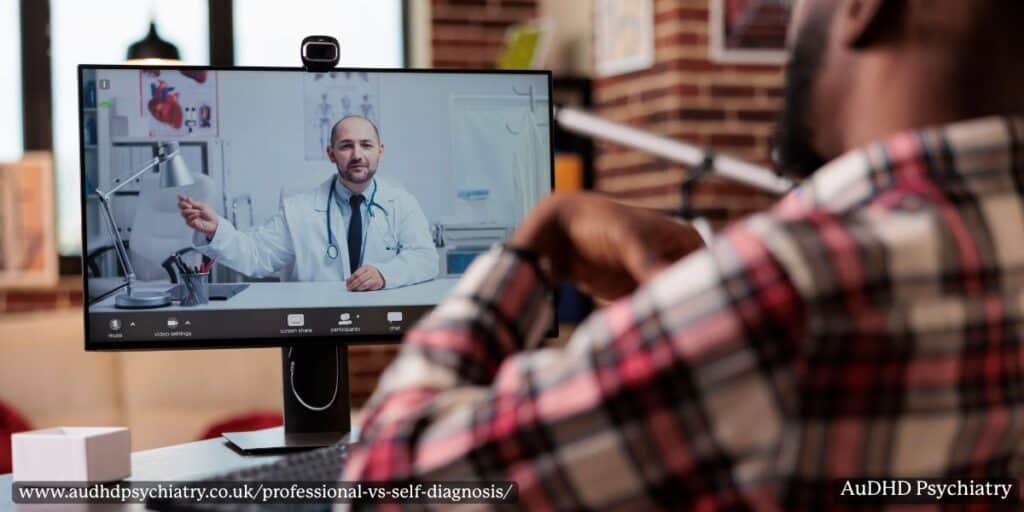
Comprehensive Evaluation
You’ll attend a 90–120 minute consultation with a Consultant Psychiatrist. This includes a structured clinical interview, a review of relevant records, and targeted rating scales. Family members or significant others may be invited to provide input, offering a broader picture of your daily challenges and strengths.
Additional Components
Clinicians may use standardised rating scales, symptom checklists from the Statistical Manual of Mental Disorders (DSM-5), or differential diagnosis to rule out other mental health conditions, for example bipolar disorder or autism spectrum disorder. This helps avoid errors common with online ADHD diagnosis or self-assessment tools. If autism is a concern, an autism assessment for adults offers clarity and ensures the right support plan is in place.
Medical Evaluation
Finally, a medical examination may be performed to rule out physical health conditions that mimic ADHD, such as thyroid issues or sleep disorders. This step is essential to ensure you receive an accurate diagnosis and safe treatment plan.
A structured professional assessment provides clarity, opening the door to effective treatment options and support. Unlike self-diagnosis of ADHD, this process offers the confidence of a reliable, evidence-based evaluation.
Report, Diagnosis & Next Steps
After the assessment, you’ll receive a detailed written report. This explains whether diagnostic criteria for ADHD are met and outlines tailored recommendations. Plans may include therapy referrals, workplace or educational adjustments, and, where appropriate, initiation of ADHD medication. Follow-up and review appointments are offered to ensure ongoing support.

At a Glance: Your ADHD Assessment with AuDHD Psychiatry
- Step 1: Book an Optional Free Consultation
- If you have questions before going for an assessment, we’ll happily sit with you and provide answers.
- Step 2: Book an ADHD Diagnostic Assessment
- Schedule online at a time that suits you (evenings and weekends available).
- Complete your online intake. These are Structured forms covering development, education, wellbeing, and lifestyle.
- Step 3: Comprehensive Assessment with Chartered Psychologist
- Attend a 1:1 ADHD Diagnostic Assessment with a Chartered Psychologist.
- Includes a structured interview, review of records, and targeted rating scales.
- Adults: attend alone or with a partner/friend for collateral history.
- Children: parents/carers attend; we may briefly meet the child to build rapport. Find out more about child adhd assessments here.
- Step 4: Post-Assessment Treatment & Medication Options
- Plan may include therapy referrals, workplace/education adjustments, and medication initiation where appropriate.
- Step 5: Report, Diagnosis & Next Steps
- Receive a clear diagnostic report with outcomes and recommendations.
- Follow-up and review appointments ensure ongoing support.
- Step 6: Support for Managing ADHD After Diagnosis
- Follow-up and review appointments for medication titration, therapy, or any other form of treatment to ensure ongoing support.
This structured process offers a thorough, evidence-based pathway to an accurate ADHD diagnosis and a clear treatment plan personalised to your needs.
Signs You May Have ADHD
Recognising potential ADHD symptoms is often the first step in deciding whether to seek a professional ADHD diagnosis. However, these signs vary between children and adults, and they frequently overlap with other mental health conditions, which is why a qualified healthcare professional must carry out a proper ADHD diagnostic assessment for adults.
ADHD in Adults vs Children
- Children often show more visible hyperactivity symptoms, such as running, fidgeting, or talking excessively.
- Adults with ADHD may present with less obvious restlessness but greater challenges in organisation, time management, and emotional regulation.
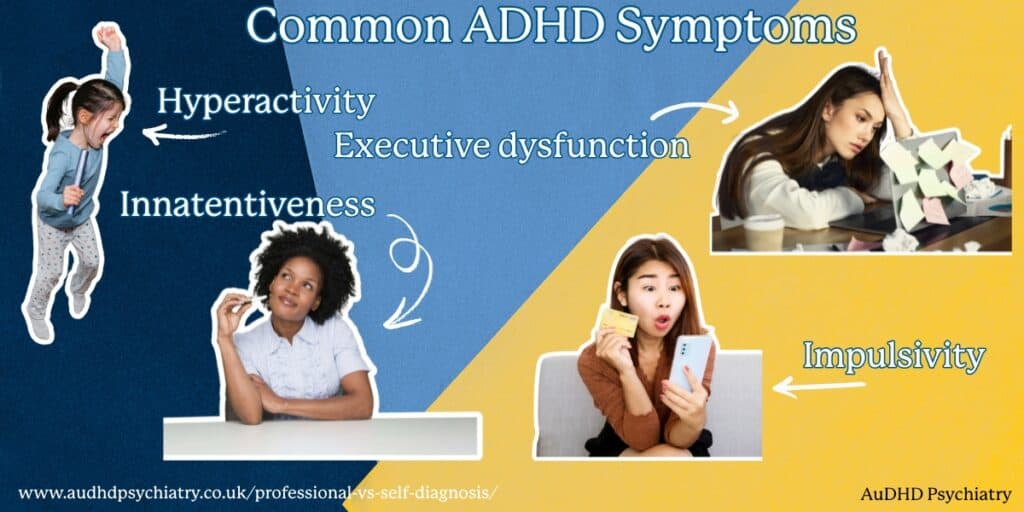
Common Symptoms
- Inattentive symptoms: difficulty sustaining attention, careless mistakes, misplacing items, poor concentration in meetings or lectures.
- Hyperactive symptoms: inner restlessness, difficulty relaxing, talking excessively.
- Impulsive behaviour: interrupting conversations, rushing decisions, or struggling to wait.
- Executive function difficulties: problems with planning, prioritising, or following through on daily tasks.
Symptom Overlap with Other Conditions
These signs can also appear in anxiety disorders, depression, or autism spectrum disorder, making self-diagnosis inaccurate. Online resources or symptom checklists may raise awareness, but they cannot replace the ADHD assessment process conducted by a qualified healthcare professional.
Why Recognition Matters
Identifying these potential ADHD symptoms early allows people to track their experiences, take notes, and approach a GP or specialist with concrete examples. This preparation supports the ADHD assessment process and helps ensure an accurate diagnosis rather than confusion with different conditions.
What to Do if You Think You Have ADHD
If you believe you may have ADHD, self-diagnosis alone is not enough. The best approach combines self-awareness with seeking professional help.
Step 1: Track Your Symptoms
Keep a record of your daily activities and challenges. Note patterns of distractibility, missed deadlines, or emotional outbursts. Involving family members or significant others can add valuable perspective.
Step 2: Explore Reliable Resources
Use educational guides rather than social media for information.
Step 3: Speak to a Health Professional
Book an appointment with a GP, psychiatrist, or psychologist experienced in ADHD. Be aware that not all GPs can give a formal diagnosis for ADHD; they may refer you for a specialist evaluation.
Step 4: Consider NHS vs Private Assessment
While NHS pathways exist, waiting times can be long. A private ADHD assessment with AuDHD Psychiatry provides faster access, a comprehensive evaluation, and a clear treatment plan.
Step 5: Prepare for Next Steps
Bring notes, any school reports, or workplace feedback to your appointment. This evidence supports a professional ADHD diagnosis and helps clinicians provide an accurate evaluation.
Understanding what to do if you suspect ADHD is crucial, but it is equally important to recognise the risks of a misdiagnosis.
The Risks of Misdiagnosing ADHD
When ADHD is misdiagnosed either by self-diagnosis or by a professional without proper training, the consequences can be significant.
Potential Health Implications
Receiving the wrong diagnosis may lead to ineffective or harmful treatment. For example, being treated for depression when the underlying issue is ADHD can leave symptoms unresolved. Conversely, being prescribed stimulants without proper assessment can cause side effects or worsen other conditions.
Financial and Educational Costs
A misdiagnosis may push individuals toward unnecessary therapies, productivity tools, or alternative treatments that do not address the root problem. In academic settings, students may miss out on reasonable adjustments or support services if ADHD is not accurately identified.
Emotional and Psychological Impact
Living with the wrong diagnosis can lower self-esteem and increase frustration. Adults may continue to blame themselves for difficulties in focus, organisation, or relationships, believing they are “failing” rather than managing an untreated condition.
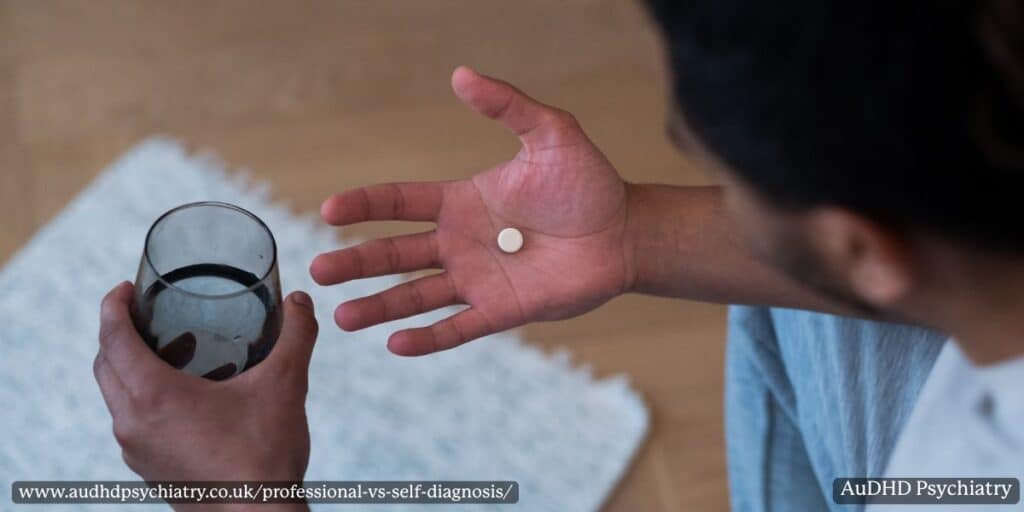
Risk of Substance Misuse
Research shows that adults with undiagnosed or misdiagnosed ADHD are at higher risk of going through substance abuse, as some turn to alcohol or stimulants to cope with symptoms. This creates further health and safety risks.
Why Accurate Diagnosis Matters
A structured professional ADHD diagnosis ensures that treatment options, from medication to coaching and lifestyle strategies, are tailored to the individual. It also provides credibility in education and the workplace, enabling access to support schemes such as Access to Work in the UK.
Beyond Medication: Support for ADHD
While ADHD medication can be an effective part of a treatment plan, it is by no means a complete solution. Therapy, coaching, and lifestyle changes play a significant role in managing ADHD symptoms and improving long-term outcomes.If you’re ready to take the next step and get treatment started, combining professional support with therapy and coaching ensures the best results.
‘Pills Don’t Build Skills’
Medications like stimulants (e.g. methylphenidate or lisdexamfetamine) and non-stimulants (e.g. atomoxetine or guanfacine) help manage the biological aspects of ADHD, such as impulse control and focus. However, ADHD treatment goes beyond just addressing the neurochemical imbalances.
The Role of Therapy
At AuDHD Psychiatry, we believe therapy is crucial to help individuals develop practical skills helpful for managing their condition. Cognitive behavioural therapy (CBT), counselling, and psychoeducation provide tools for improving executive function (planning, prioritising, task initiation) and regulating emotions.
For adults, therapy often focuses on work-life balance, career development, and relationship dynamics. Teens may work on exam strategies and dealing with peer pressure, while children learn classroom routines and social skills. This therapeutic support works alongside medication to ensure individuals can function effectively in daily life.
ADHD Coaching
Coaching helps individuals apply their ADHD insights into practical action. Coaches support individuals with time-blocking, organisational skills, and task management. They also provide accountability, offering strategies to improve follow-through on daily tasks.
For adults, coaching helps manage workplace productivity and balance domestic responsibilities. For teens, coaching focuses on things such as:
- Study planning
- Managing exam stress
- Dealing with school pressures
Our ADHD coaching at AuDHD Psychiatry is tailored to each individual’s specific needs, ensuring a personalised approach that promotes long-term success.
ADHD and Misinformation on Social Media
The rise of social media has made ADHD a prominent topic, but with that visibility comes the spread of misinformation. From online quizzes to celebrity diagnoses, many people in the UK are misinformed about ADHD symptoms, treatment, and what it means to live with ADHD.
Why Is There an Increase in ADHD Diagnosis in the UK?
ADHD awareness in the UK has grown significantly, leading to more people seeking assessments. This increase in diagnoses is due in part to better access to information, but also because of growing awareness that ADHD continues into adulthood. While this is positive, it has also resulted in a spike in online ADHD diagnosis claims, which can lead to confusion.
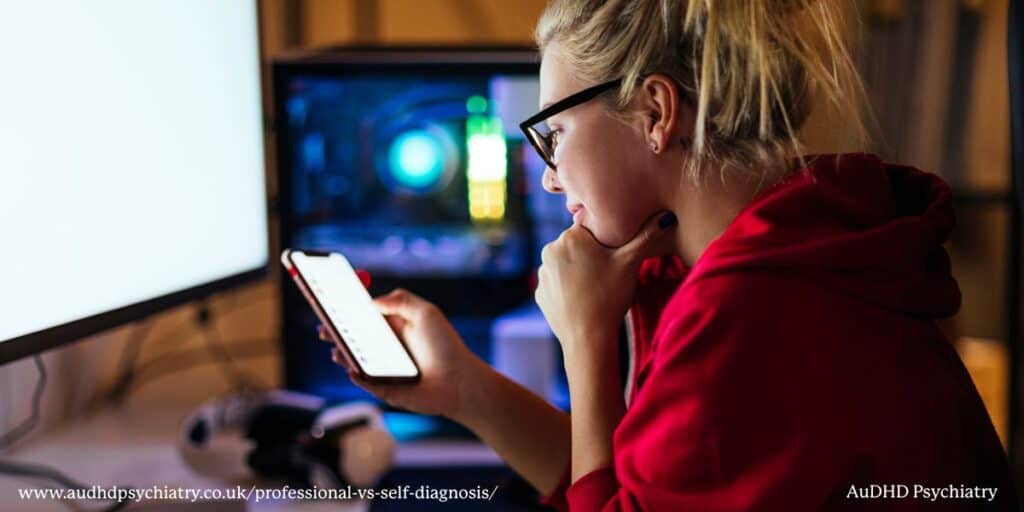
What ADHD Content Is Being Published on Social Media?
Social media platforms have seen an influx of ADHD content. Unfortunately, much of this information is oversimplified or inaccurate. ADHD is often presented in a trendy way, with symptoms like “forgetting your keys” or “being easily distracted” framed as quirky traits instead of the real challenges individuals face. This can create misconceptions and minimise the severity of the condition.
Getting an ADHD Diagnosis Is a Complex Process
The ADHD diagnosis process is not as simple as ticking boxes on a quiz. Online ADHD assessments cannot replace professional evaluations. At AuDHD Psychiatry, our thorough, evidence-based ADHD assessments ensure that an accurate diagnosis is made, ruling out other potential mental health conditions.
Celebrities Breaking the Stigma Around ADHD
Public figures are increasingly opening up about their ADHD diagnoses, helping to reduce the stigma. Some have shared their struggles with ADHD, highlighting the importance of recognising the condition at any age. While their openness is valuable, it’s important to remember that each person’s ADHD journey is unique.
Overcoming Misinformation on Social Media
To avoid the spread of ADHD misinformation, turn to trusted sources for accurate, professional insights. Be wary of self-diagnosis based on viral posts or online quizzes. If you suspect you have ADHD, seek a formal assessment with a qualified healthcare professional for the most accurate diagnosis and treatment plan.
ADHD Self Diagnosis vs. Professional Diagnosis: Conclusion
Self-diagnosing ADHD can lead to mislabeling, emotional distress, and wasted resources. A professional ADHD diagnosis is essential for clarity and effective treatment. At AuDHD Psychiatry, we offer thorough, evidence-based ADHD assessments led by experienced ADHD specialists. Our process includes structured interviews, clinical evaluations, and medical exams to ensure an accurate diagnosis and treatment plan tailored to your needs.
A professional diagnosis opens the door to personalized treatment, which may include medication, CBT, coaching, and workplace adjustments. With AuDHD Psychiatry, you can confidently address your ADHD symptoms and access the right support.
If you suspect you have ADHD, don’t wait. Seek a reliable, professional evaluation. Book your ADHD assessment with AuDHD Psychiatry today and take the first step toward understanding and managing ADHD effectively.
You Might Also Like
Contact Us
We’re here to answer any questions you might have.
Get in Touch
Opening Hours
Contact Form
We’re here to help. Reach out and we’ll get back to you within 24 hours (Monday – Friday).

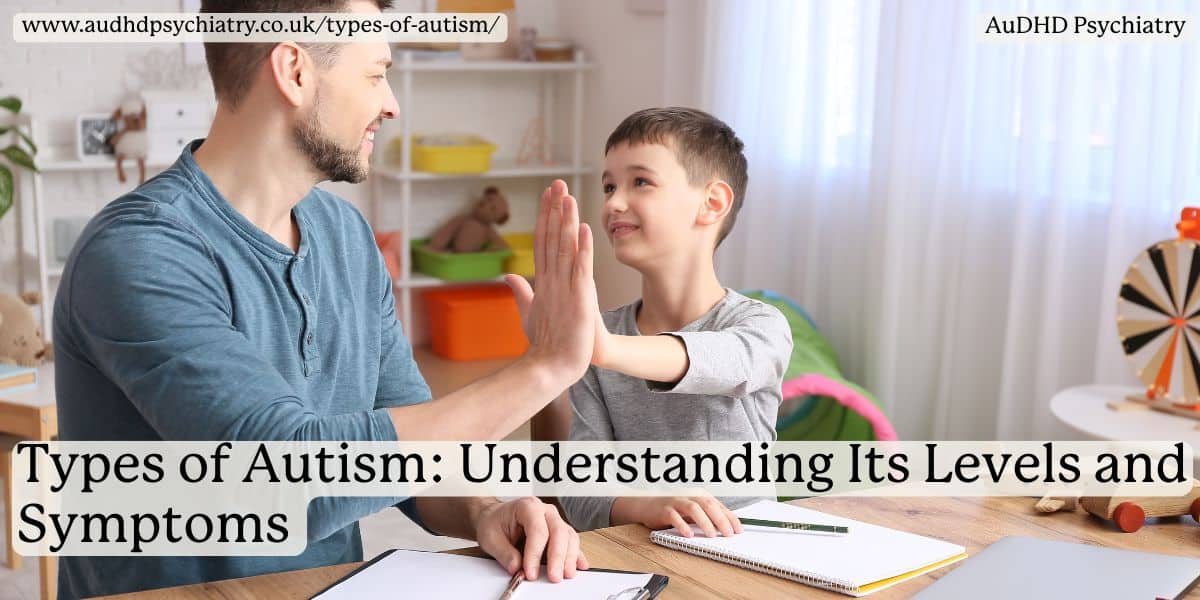
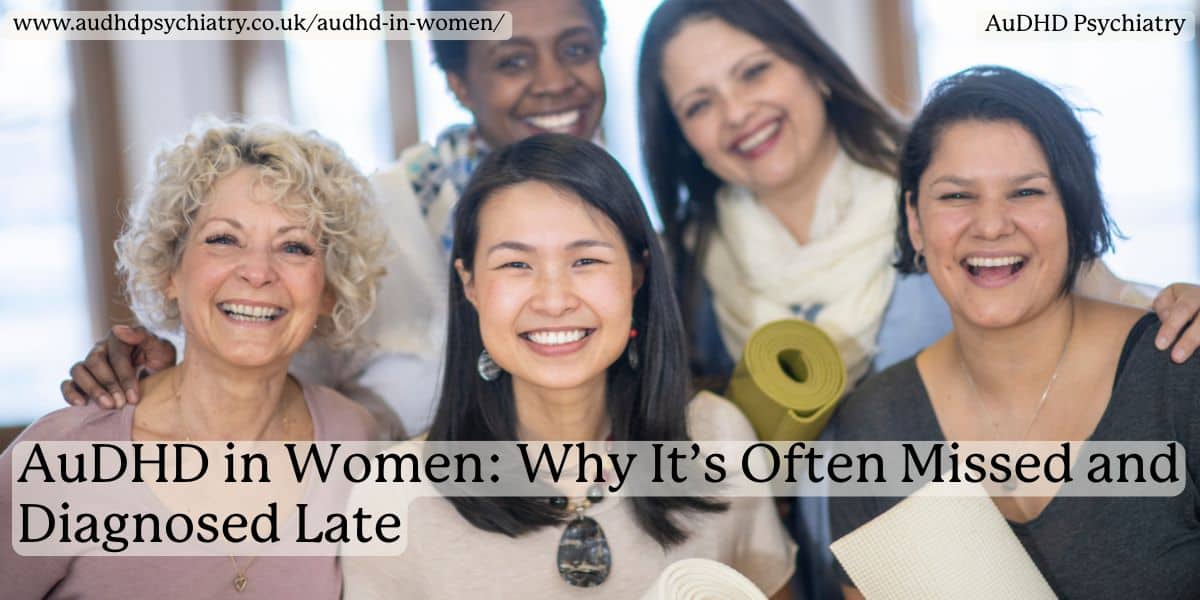
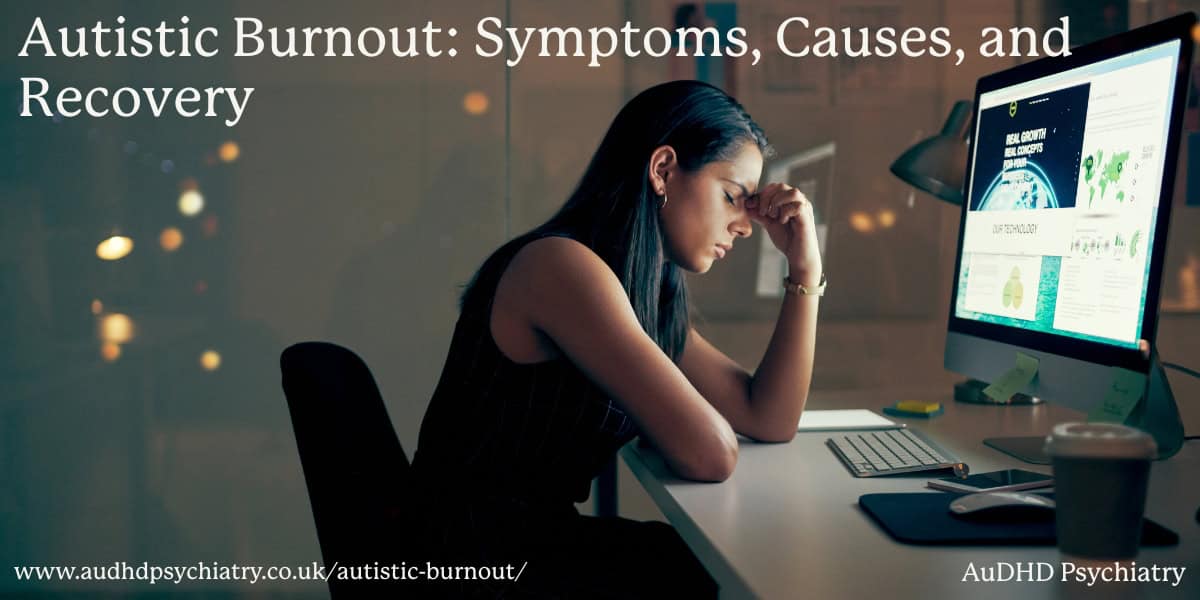
Leave a Reply